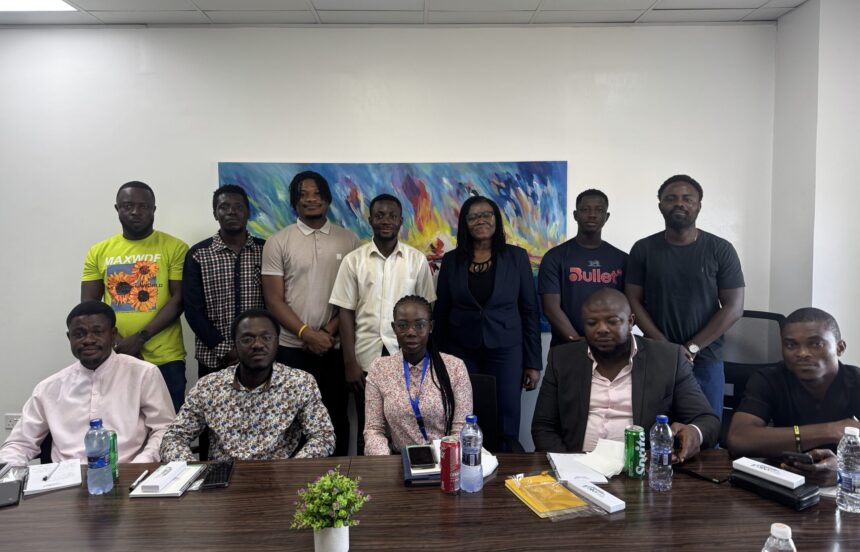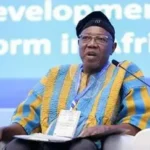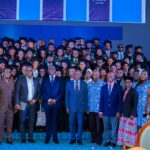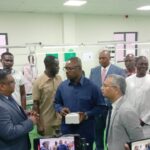On Wednesday, 12th Nov. 2025, the staff of Tobinco Media Group (TMG) gathered at the Mövenpick Hotel for a timely and impactful training session with Ghanaian intellectual property (IP) lawyer Sarah Anku of Anku.Anku At Law. The initiative, tailored for creatives, production, and operations staff, underscored the critical importance of respecting copyright and obtaining permission before using content, especially music and other intangible works that do not originate from the user.

During the workshop, Esq. Sarah Anku made a striking observation: “We don’t put value on content in Africa, mostly the intangible ones.” Her remarks opened a frank conversation about why IP theft is rampant on social media platforms, particularly in creative economies across the continent. She stressed that nearly every original piece produced, whether a social media graphic, radio jingle, or broadcast promo, carries some degree of copyright, regardless of how informal or ephemeral it may feel.

To make her points tangible, Anku drew on real-world case studies her firm has handled, illustrating how misappropriation plays out legally and commercially. She shared scenarios involving unauthorized uses, licensing issues, and infringing broadcast practices, helping participants understand not only the moral but also the economic reasons for compliance.
The session concluded on a high note: Tobinco staff posed thoughtful, practical questions about recurring challenges in their daily operations, broadcasting, content distribution, licensing, and production, and received expert guidance from Anku. The engaged dialogue reinforced that safeguarding IP is not just about legality; it’s about building sustainable creative businesses, protecting artists, and advancing Ghana’s and Africa’s creative economies.
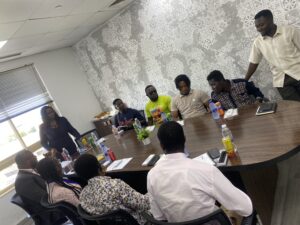
Why This Training Matters: The Bigger Picture on IP in Africa
Anku’s training comes at a pivotal time. Africa’s creative industries hold extraordinary potential for economic growth, yet their progress is often stunted by weak enforcement and undervaluation of intellectual property.
According to a report by the Atlantic Council, Africa’s creative sector could generate more than US$20 billion annually and create millions of jobs if IP rights were better protected and monetized. However, the same report warns that a fragmented IP rights framework across the continent severely undermines enforcement, licensing, and value creation.
Indeed, despite the rich creative output across Africa, piracy remains deeply entrenched. A UNESCO‑commissioned study found that consumer attitudes toward copyright infringement are often surprisingly tolerant, as piracy is normalized in daily life. Many countries have legal frameworks in place, but enforcement is weak, and collective management organizations (CMOs), which should license and collect royalties, frequently lack legitimacy, accountability, or sufficient participation.
In Ghana, the legal foundation for protection is laid out in the Copyright Act (Act 690, 2005), which covers a wide array of creative works from musical compositions to software. Yet enforcement remains a challenge. According to Ghana’s digital business laws report, regulators often lack the technical capacity to investigate and prosecute online piracy, especially on social media.
At the same time, efforts are growing. In recent years, cross-border partnerships have gained momentum in the fight against content theft. For instance, MultiChoice Ghana, in collaboration with international enforcement agencies, has deployed forensic watermarking and proactive takedown strategies to shut down illegal streaming operations. These partnerships show that with the right tools, intellectual property rights can be defended and creatively monetized.
The Local Context: Challenges and Legal Precedents in Ghana
Even in Ghana’s own legal history, creative works have been at the center of copyright disputes. A landmark case, Paul Oliver v. Samuel K. Boateng, involved software copyright. The court reaffirmed that under Act 690, only expressions fixed in a tangible medium, not abstract ideas, are protected; the author held exclusive rights, and unauthorized licensing amounted to infringement.
On the licensing side, the Ghana Music Rights Organization (GHAMRO) is responsible for collecting and distributing performance and mechanical royalties. Yet, many musicians and creators argue that usage of their work, especially by broadcasters or media entities, is not sufficiently licensed, contributing to persistent underpayment.
Such legal and systemic gaps underscore why training sessions like the one at Tobinco are so vital. By equipping media professionals with the knowledge to navigate licensing, negotiate properly, and respect creators’ rights, such interventions build capacity from within.
Empowering a media company’s internal team with IP law literacy is not just a compliance exercise. It is an investment in sustainability, trust, and long-term creative growth. When broadcasters, producers, and creatives understand the value of intellectual property, they are less likely to inadvertently infringe and more likely to contribute to a culture where rights are respected, creators are fairly rewarded, and the creative economy thrives.
Tobinco Media Group’s proactive step with Anku.Anku At Law reflects a broader shift: African creative industries can no longer afford to treat IP as a side issue. It must be central to business strategy, policy advocacy, and daily operations.



